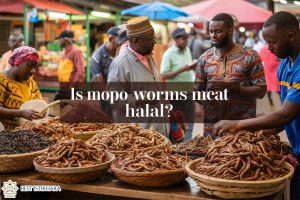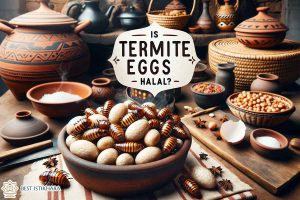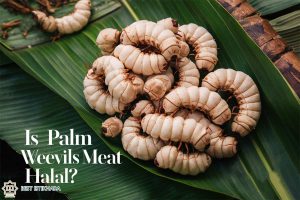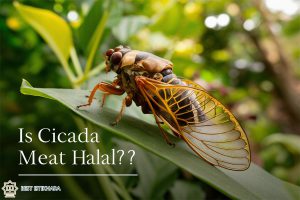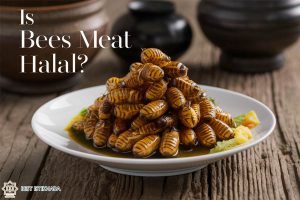Is Silkworm Pupae Meat Halal?

Silkworm pupae, a unique and traditional delicacy in China and Korea, have been consumed for centuries due to their nutritional benefits and distinct taste. These edible insects are often found in street food markets and upscale restaurants, showcasing their versatility in various dishes. Rich in protein, vitamins, and minerals, silkworm pupae are a sustainable food source and a significant part of the culinary heritage in these regions. As global interest in alternative protein sources grows, understanding silkworm pupae’s cultural, nutritional, and dietary aspects becomes increasingly essential. Click to get more information about halal vs haram topics discussed in today’s world.
Understanding Halal Dietary Laws
Halal dietary laws are derived from the Quran, Hadith, and the teachings of Islamic scholars. These laws dictate what is permissible (halal) and what is forbidden (haram) for Muslims to consume. The primary goal of halal laws is to ensure that food and drink are pure, safe, and beneficial for human health. Adhering to halal dietary laws is a fundamental aspect of practicing Islam and affects daily life and food choices. Halal certification involves thoroughly examining food products and their preparation methods to ensure compliance with Islamic standards. This certification is crucial for Muslim consumers, as it ensures that the food meets religious requirements.
What Does Halal Mean in Islamic Dietary Law?
In Islamic dietary law, halal means “permissible” or “lawful.” It encompasses all aspects of food production, from sourcing and slaughtering animals to processing and handling food products. Halal applies to meat and other consumables, ensuring they do not contain prohibited substances such as alcohol or pork. The concept of halal is rooted in the Quran and Hadith, emphasizing cleanliness, ethical treatment of animals, and humane practices. For meat to be considered halal, the animal must be healthy at the time of slaughter, and the slaughtering process must be performed by a Muslim who recites a specific prayer.
Criteria for Food to be Considered Halal
For food to be considered halal, it must meet several criteria outlined in Islamic dietary laws:
- The food must not contain haram (forbidden) ingredients, such as pork or alcohol.
- Animals used for meat must be slaughtered according to specific guidelines: they must be alive and healthy at the time of slaughter, and the act must be performed by a sane adult Muslim who invokes the name of Allah. The blood must be fully drained from the veins.
- All utensils, equipment, and preparation areas must be clean and free from contamination with haram substances.
The entire process, from sourcing to packaging, must be monitored and certified by a recognized halal certification authority to ensure full compliance.
Silkworm Pupae: Halal or Haram?
Whether silkworm pupae are halal or haram is a considerable debate among Islamic scholars. The permissibility of consuming insects, including silkworm pupae, hinges on various interpretations of Islamic dietary laws and scholarly opinions. This discussion is crucial for Muslims who seek to adhere strictly to halal nutritional requirements, especially as the popularity of edible insects grows worldwide.
Islamic Scholarly Opinions on Insects as Food
Islamic scholars have differing opinions on the permissibility of consuming insects. Based on the Hanafi school of thought, the majority view generally prohibits the consumption of most insects, considering them impure. However, other schools of thought, such as the Maliki, Shafi’i, and Hanbali, permit the consumption of certain insects, especially those considered clean and harmless, like locusts. These scholars argue that since the Quran and Hadith do not explicitly forbid all insects, some can be deemed halal if they do not harm or are beneficial. The divergence in these opinions creates a complex landscape for determining the halal status of specific insects like silkworm pupae.
Analysis of Silkworm Pupae from a Halal Perspective
Analyzing silkworm pupae from a halal perspective involves examining their nature and the conditions under which they are consumed. Proponents considering silkworm pupae halal argue that these insects are clean, nutritious, and not explicitly prohibited by the Quran or Hadith. They point out that the silkworm pupae are not harmful and can provide significant health benefits, aligning with the broader objectives of halal dietary laws. Conversely, according to the Hanafi school, those who view silkworm pupae as haram emphasize the general impurity associated with most insects. They argue that it’s safer to err on caution without explicit permission from religious texts. This ongoing debate underscores the need for individual Muslims to consult knowledgeable scholars and consider their religious convictions when deciding on the consumption of silkworm pupae.
Scientific and Religious Insights
The study of silkworm pupae from scientific and religious perspectives provides a comprehensive understanding of their benefits, risks, and permissibility in Islamic dietary laws. These insights help inform consumers’ decisions, particularly those who adhere to halal dietary restrictions.
Scientific Studies on the Consumption of Silkworm Pupae
Scientific research highlights silkworm pupae’s nutritional value and potential health benefits. These insects are rich in protein, essential amino acids, vitamins, and minerals, making them a highly nutritious food source. Studies have shown that silkworm pupae contain high levels of healthy fats, including omega-3 fatty acids, which benefit cardiovascular health. Additionally, they are a sustainable and environmentally friendly protein source, requiring fewer resources than traditional livestock. Some research also suggests that silkworm pupae have antioxidant properties and may help reduce inflammation. However, it is essential to consider potential allergens and ensure the pupae are sourced and processed hygienically to avoid health risks.
Religious Interpretations and Fatwas Regarding Silkworm Pupae
Religious interpretations and fatwas on the consumption of silkworm pupae vary among Islamic scholars. Some scholars, particularly from the Maliki, Shafi’i, and Hanbali schools of thought, have issued fatwas permitting the consumption of certain insects, including silkworm pupae, based on their perceived cleanliness and health benefits. They argue that since the primary sources of Islamic law do not explicitly prohibit these insects, they can be considered halal if they do not cause harm. Conversely, scholars from the Hanafi school generally regard most insects, including silkworm pupae, as impure and thus haram. They emphasize caution and the avoidance of potential impurities. These differing interpretations highlight the importance of consulting knowledgeable religious authorities and considering individual beliefs when determining the halal status of silkworm pupae.
Conclusion
The debate over whether silkworm pupae are halal or haram encompasses various scientific, cultural, and religious perspectives. While some Islamic scholars permit the consumption of certain insects, including silkworm pupae, others advise caution due to potential impurity. Scientifically, silkworm pupae are recognized for their high nutritional value and sustainability. However, individual Muslims must consider these diverse opinions and consult knowledgeable religious authorities to make informed decisions. As the popularity of alternative protein sources grows, ongoing dialogue and research will be essential in addressing the complexities of dietary laws and personal convictions.

